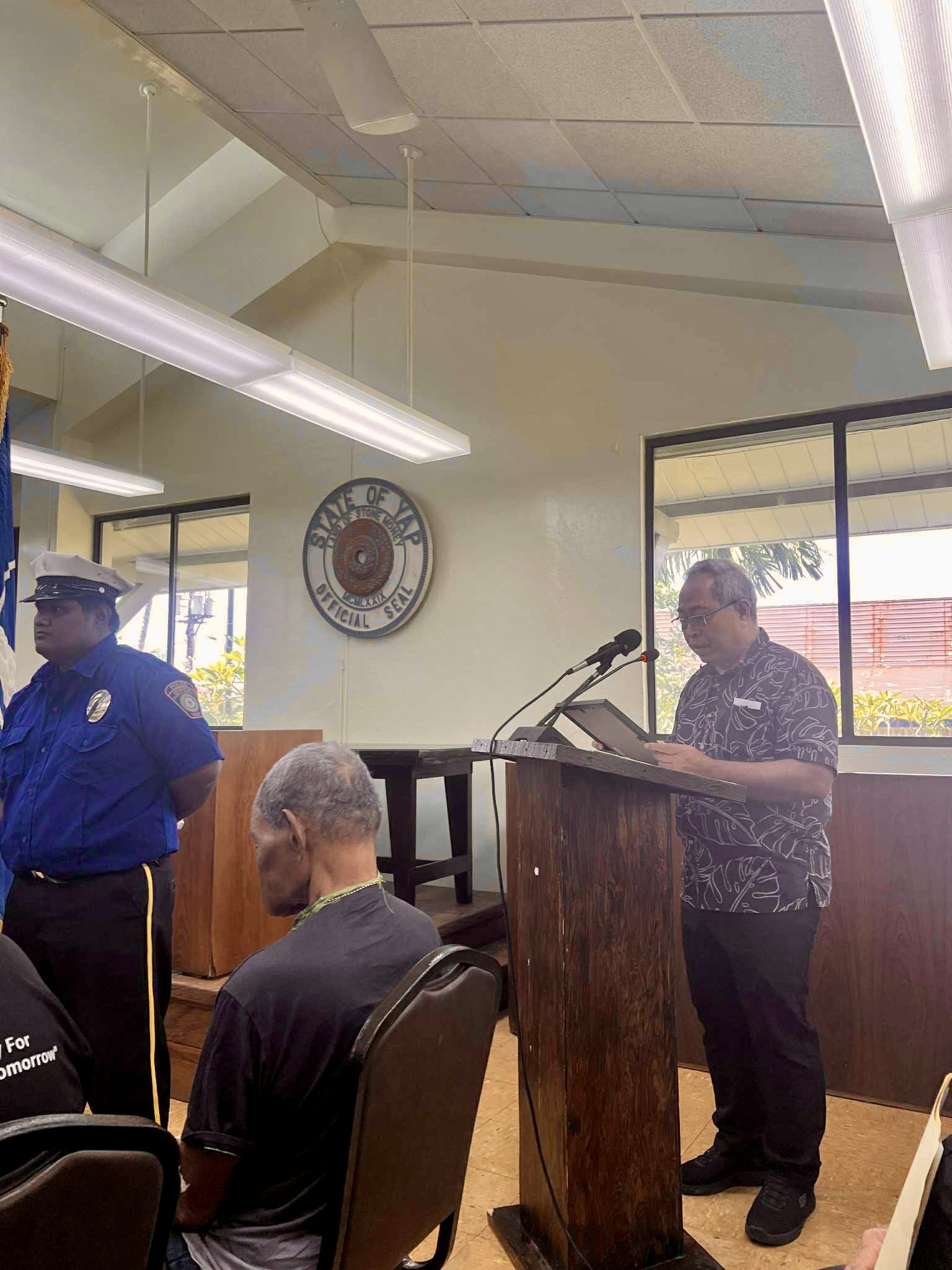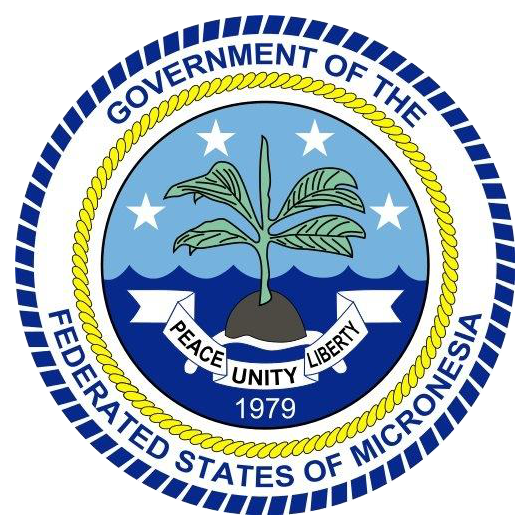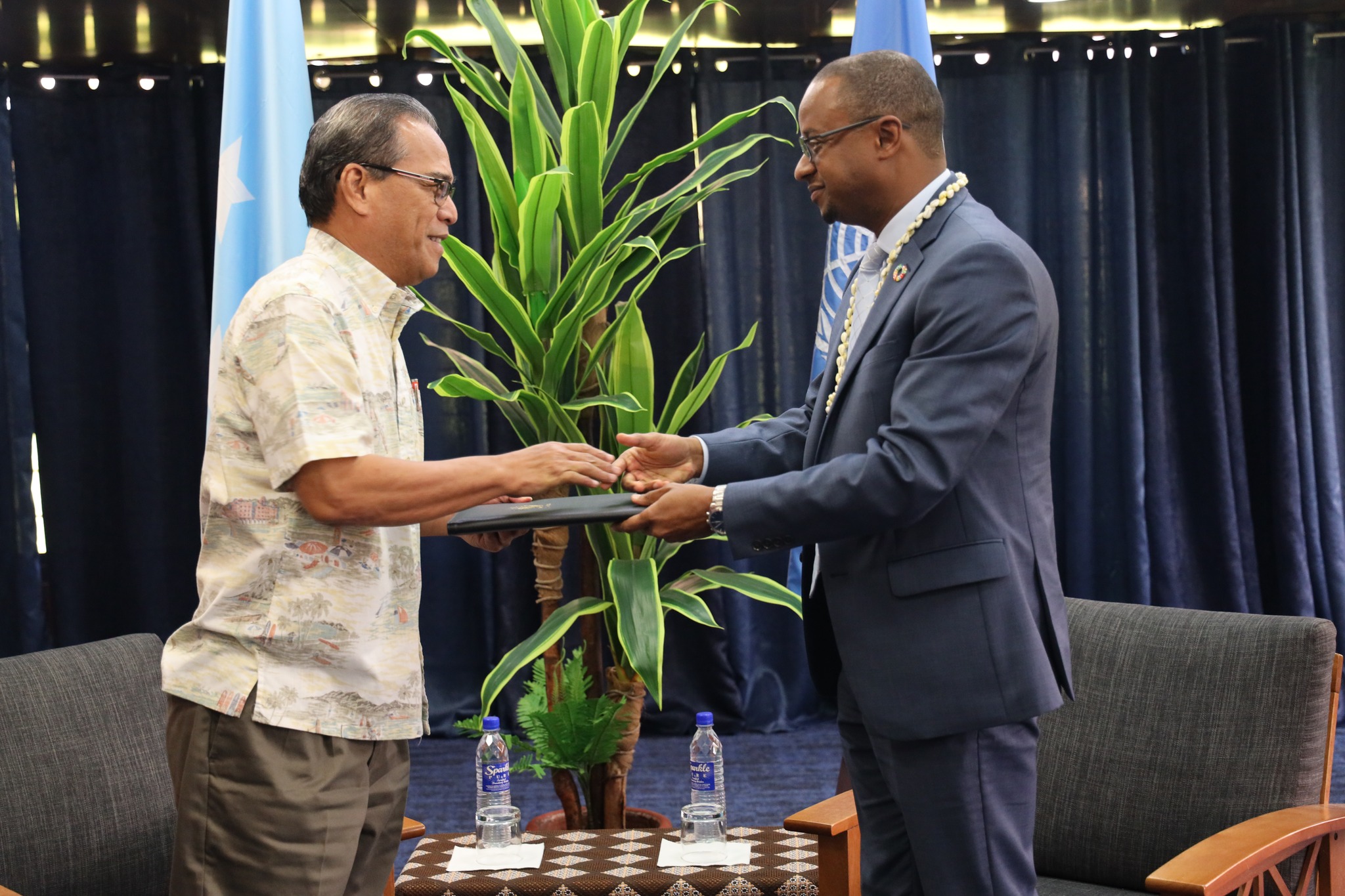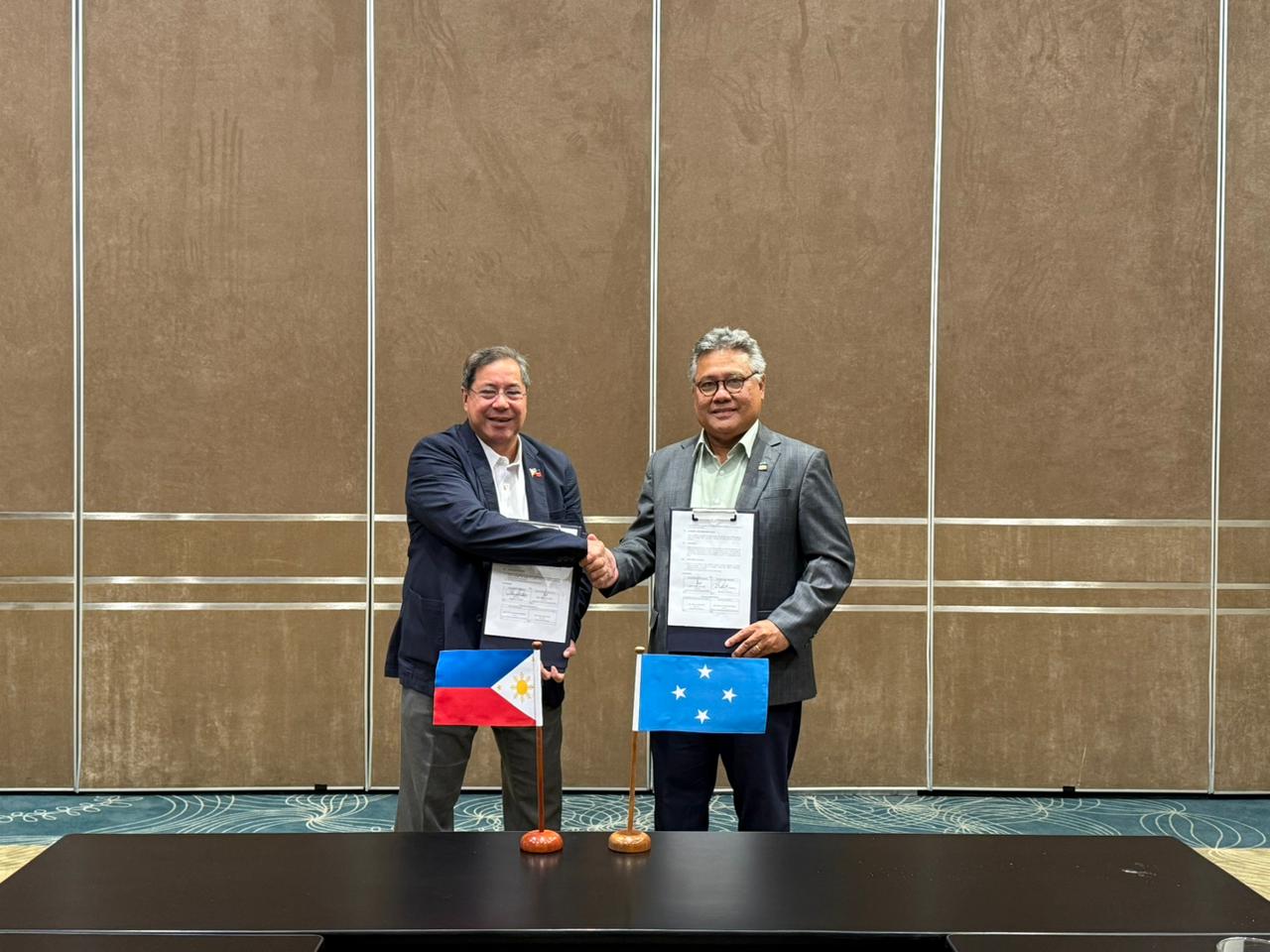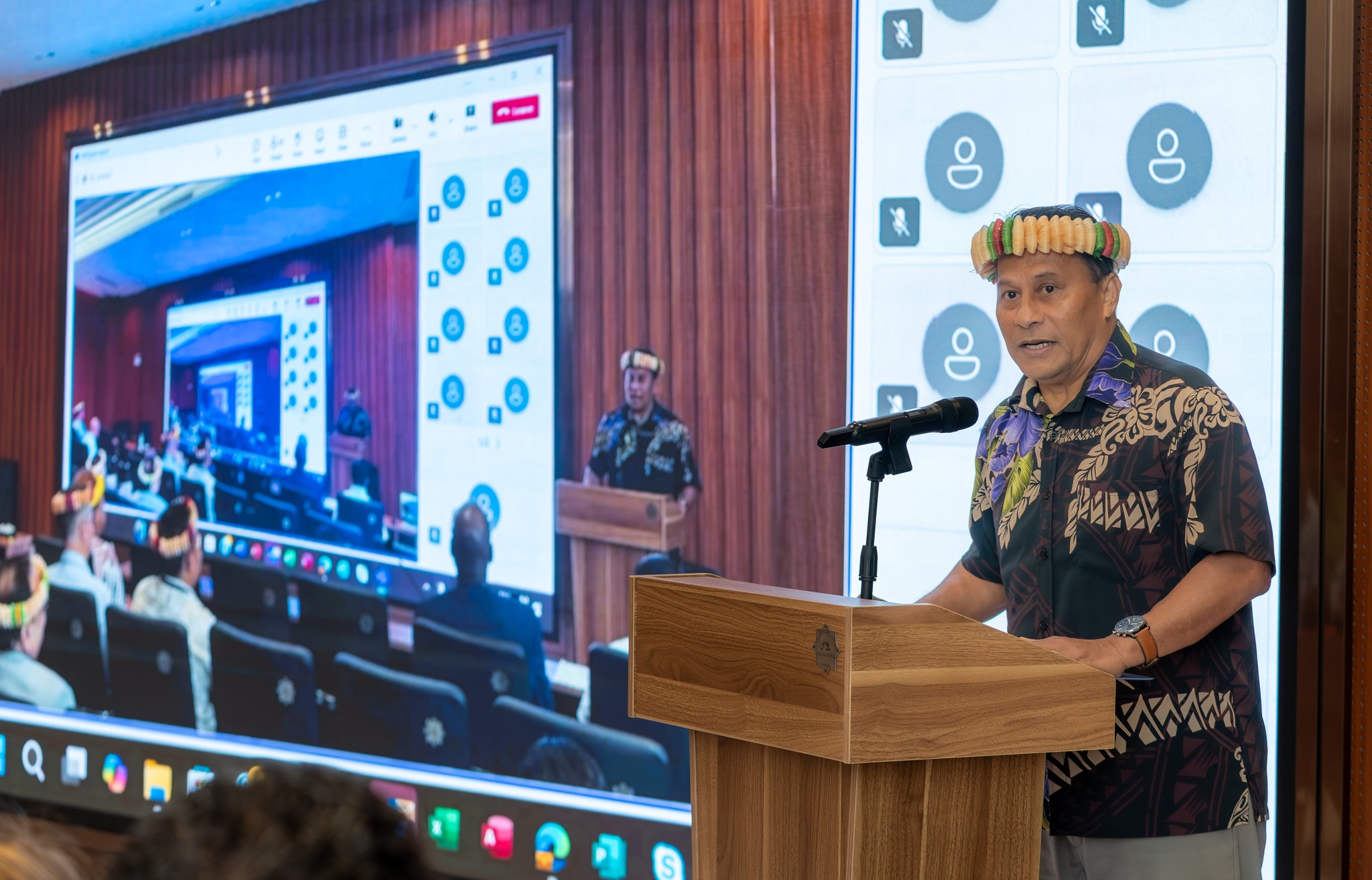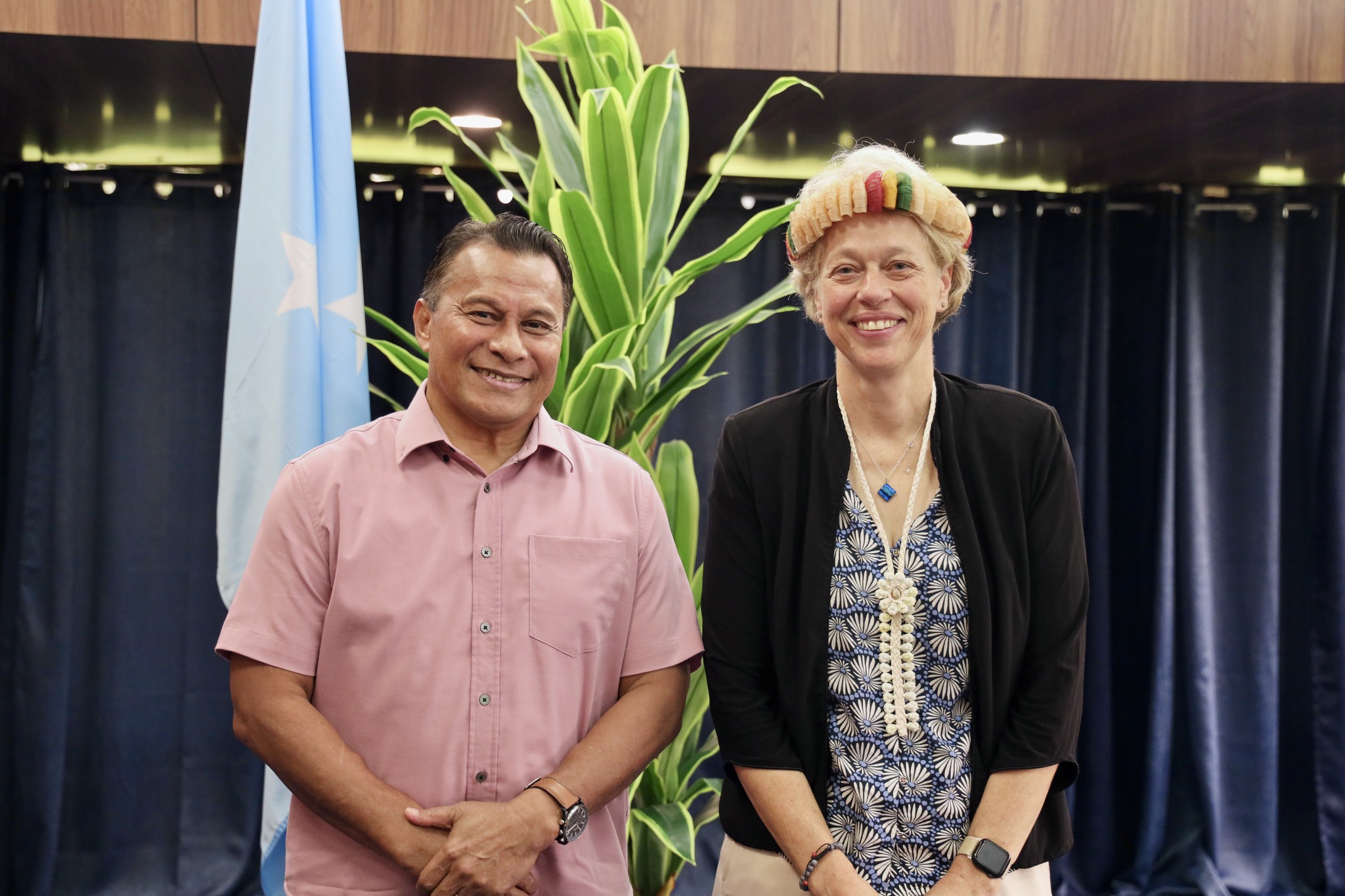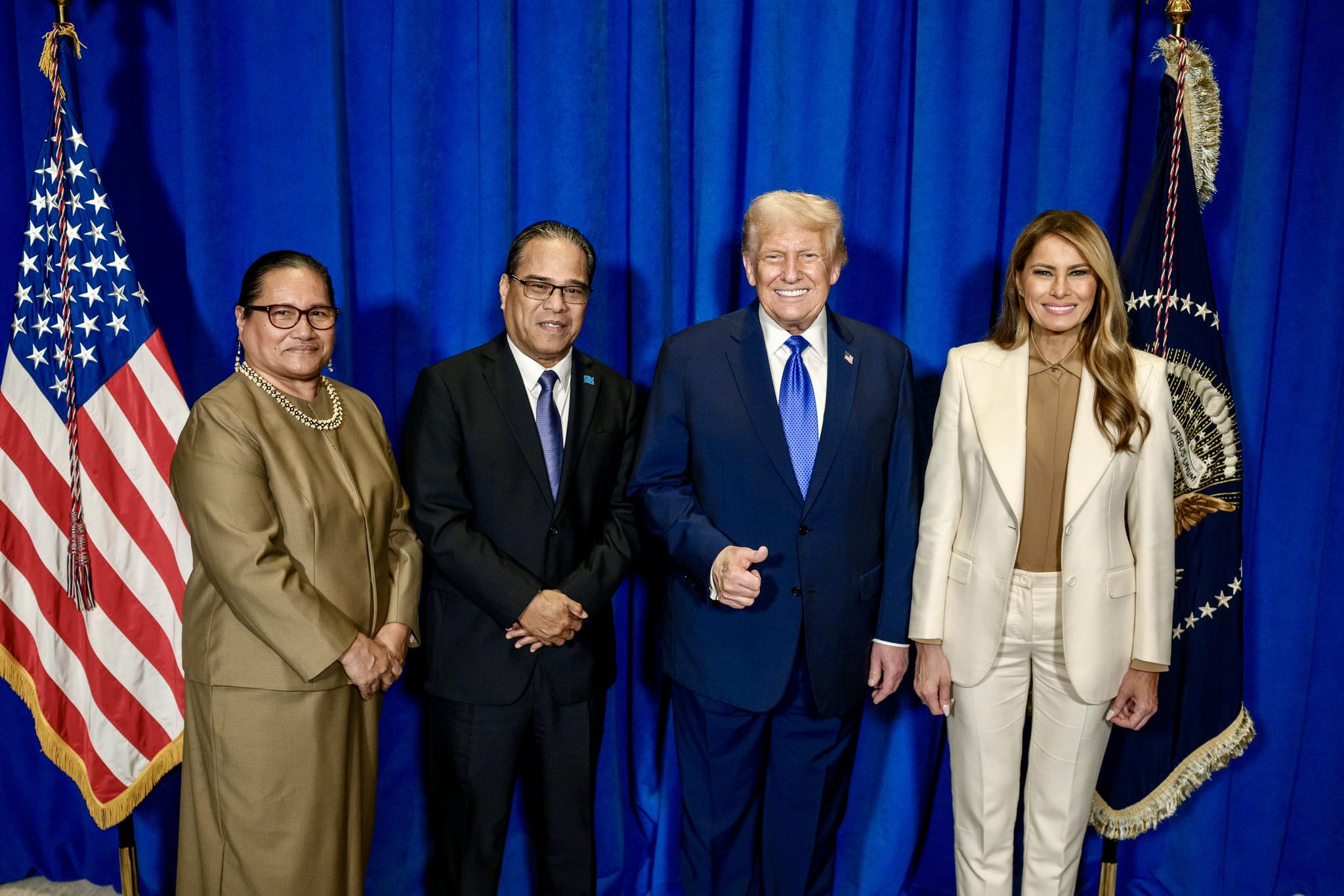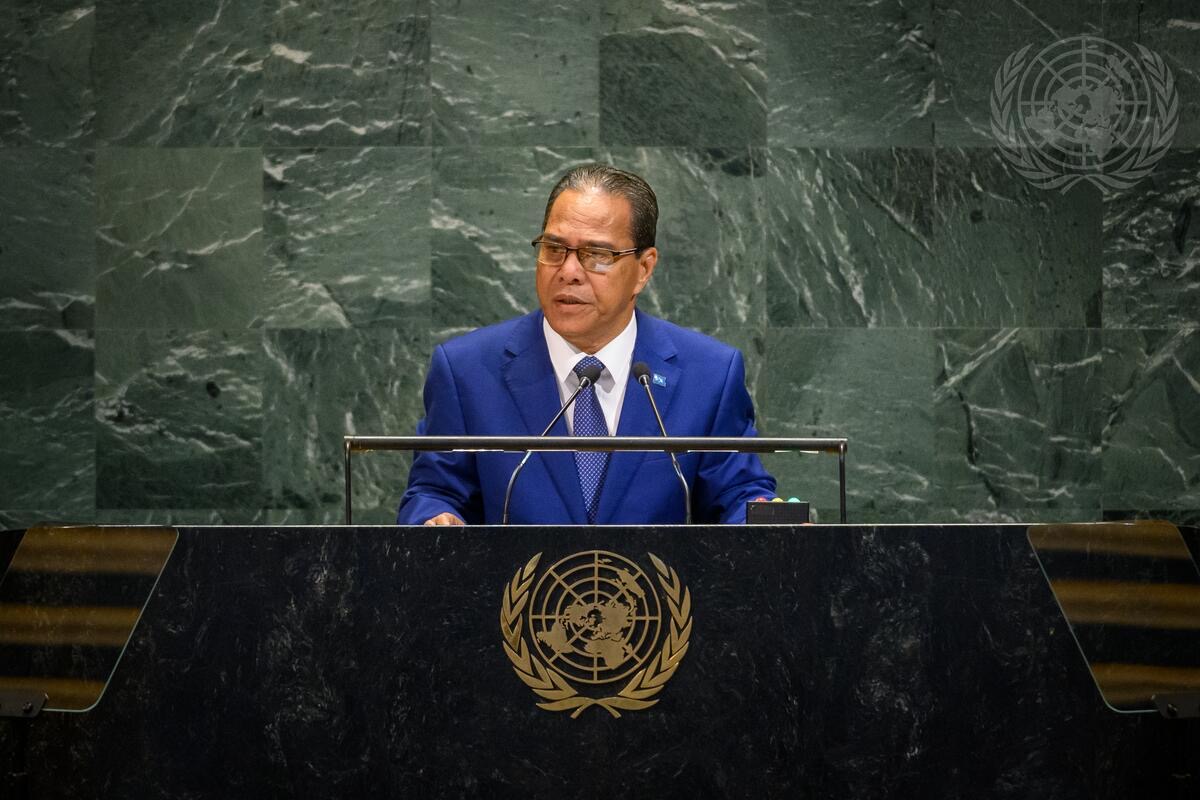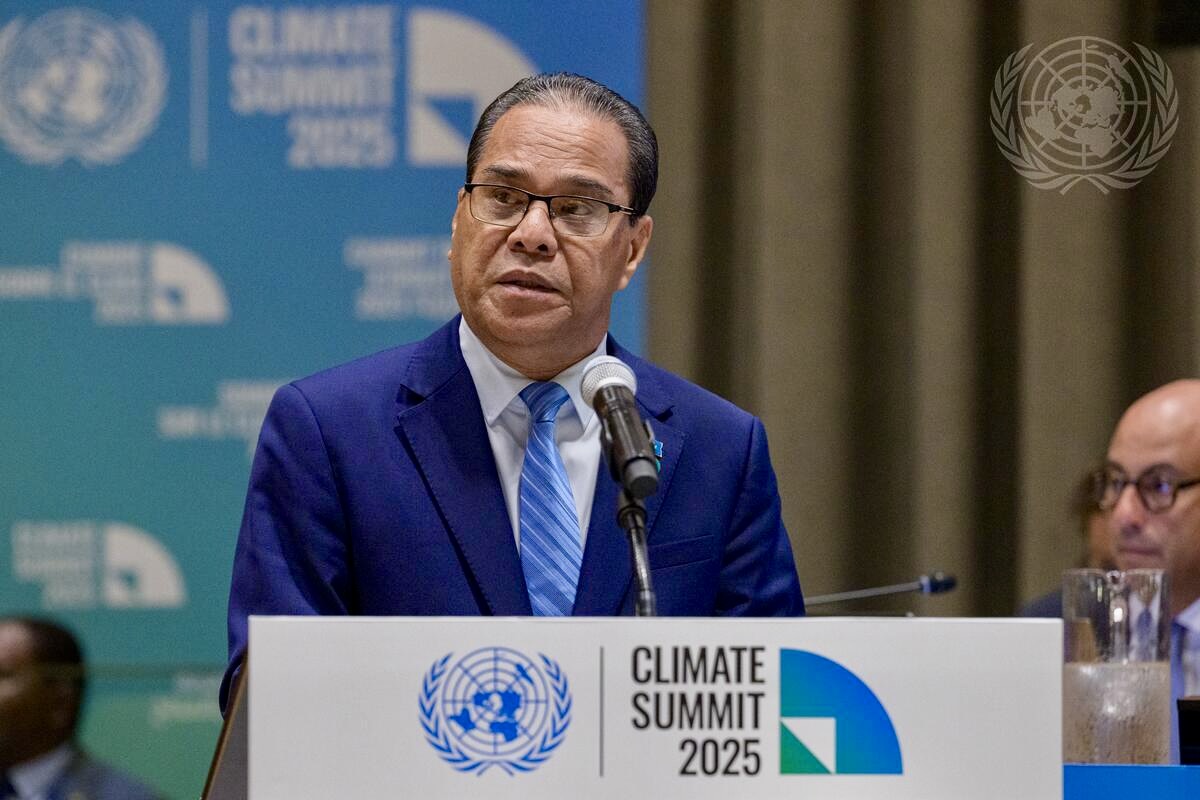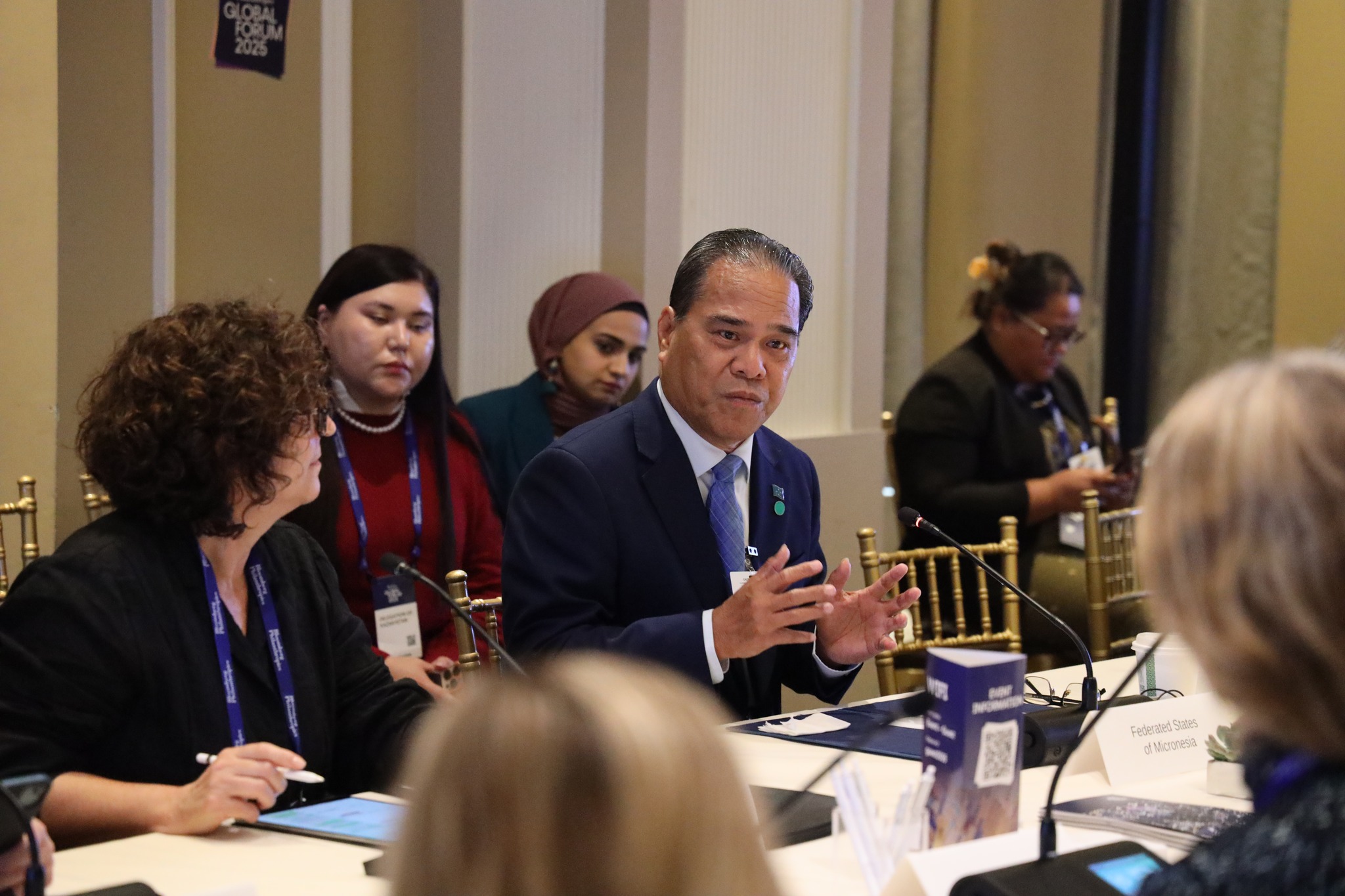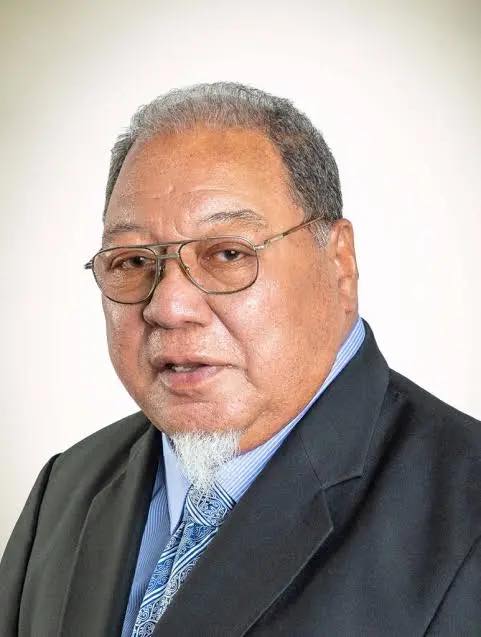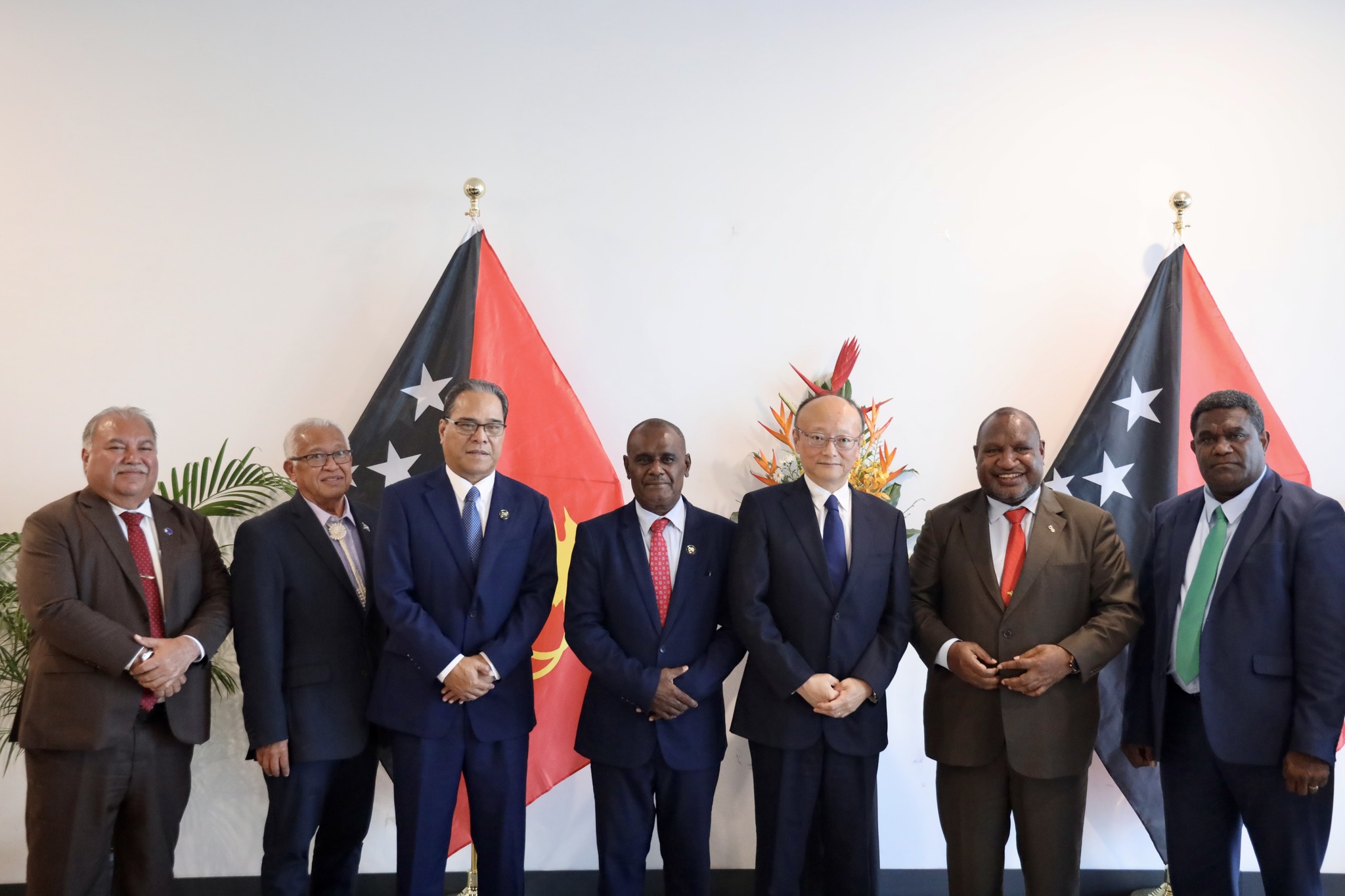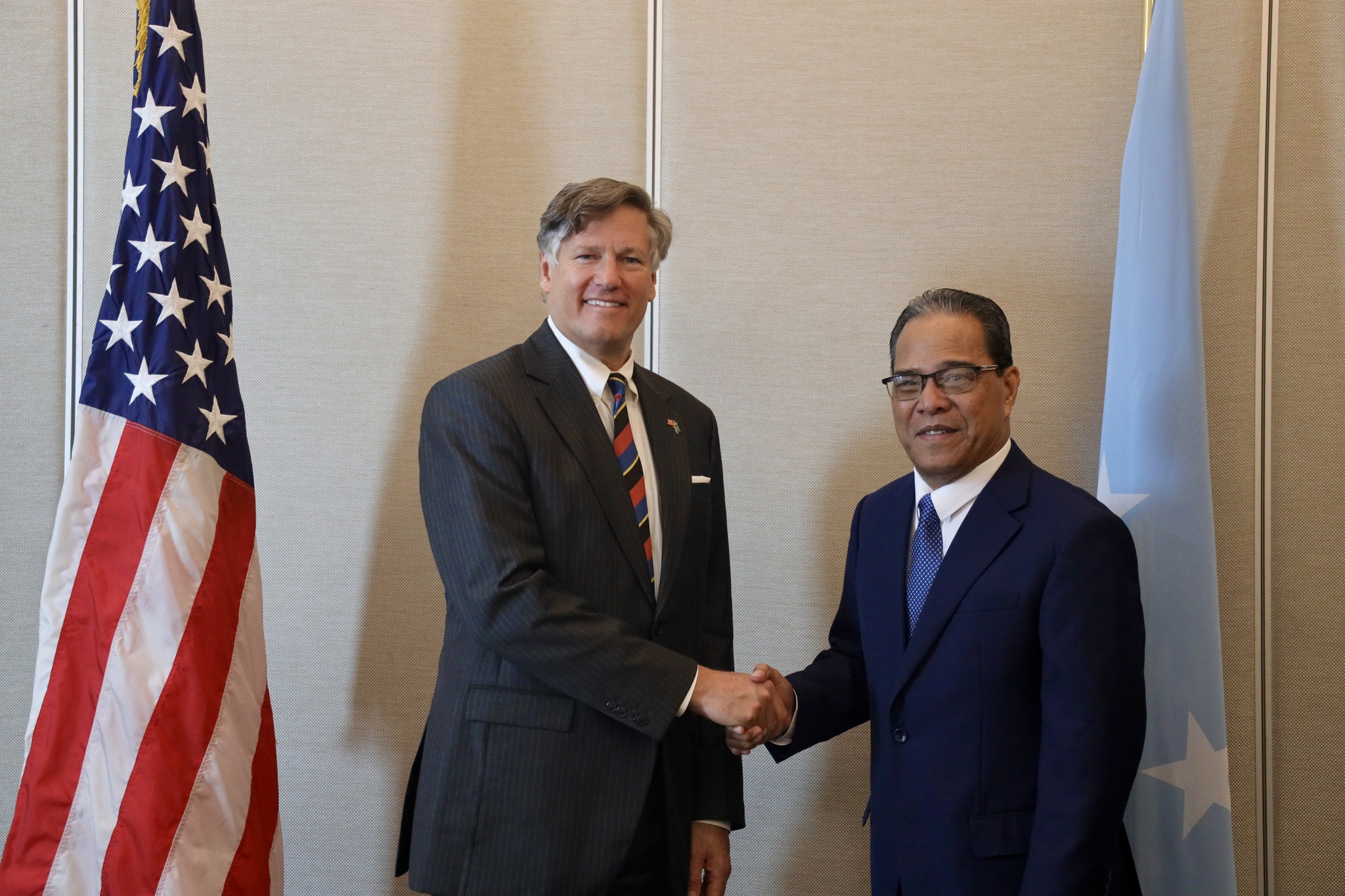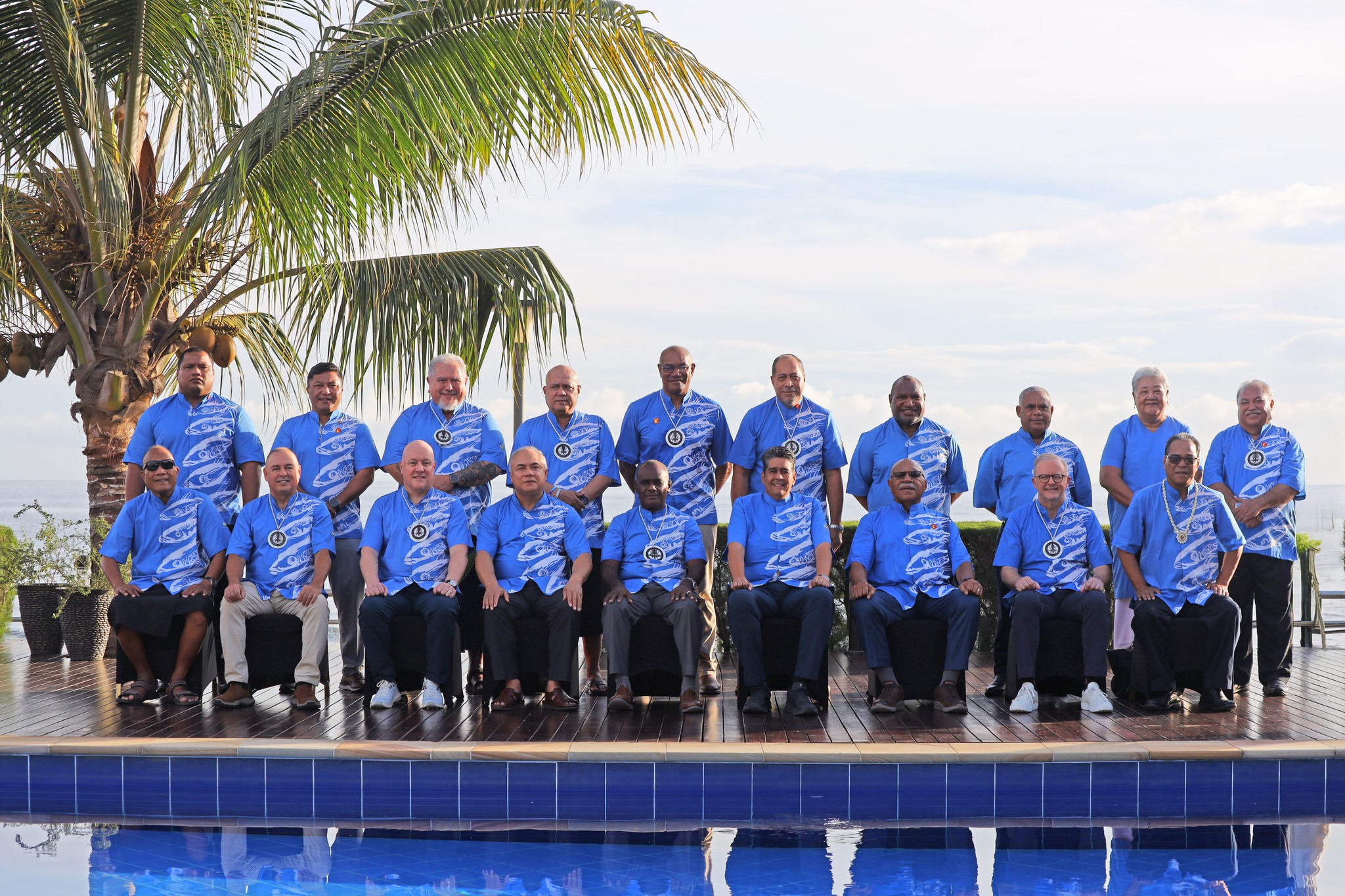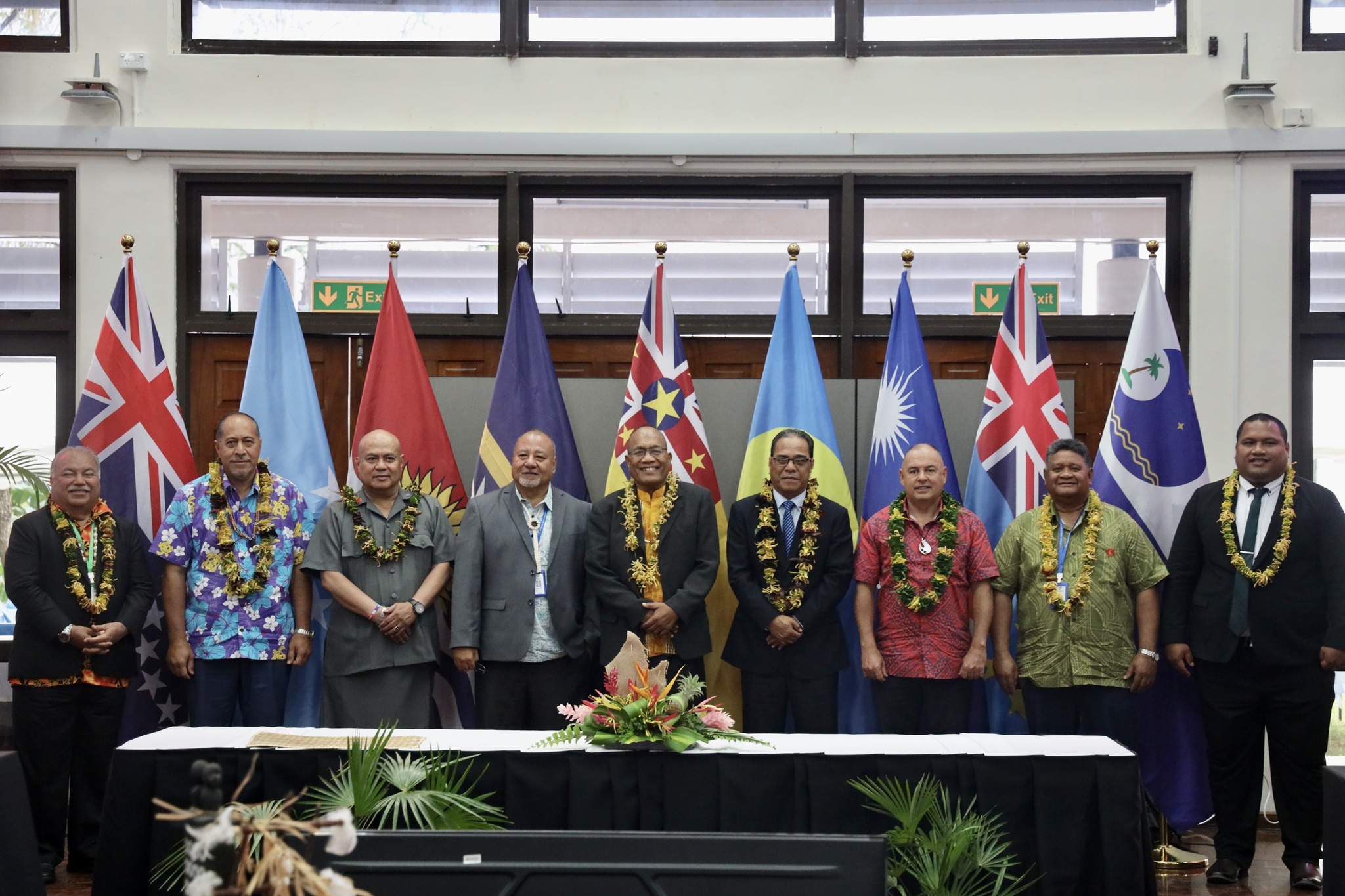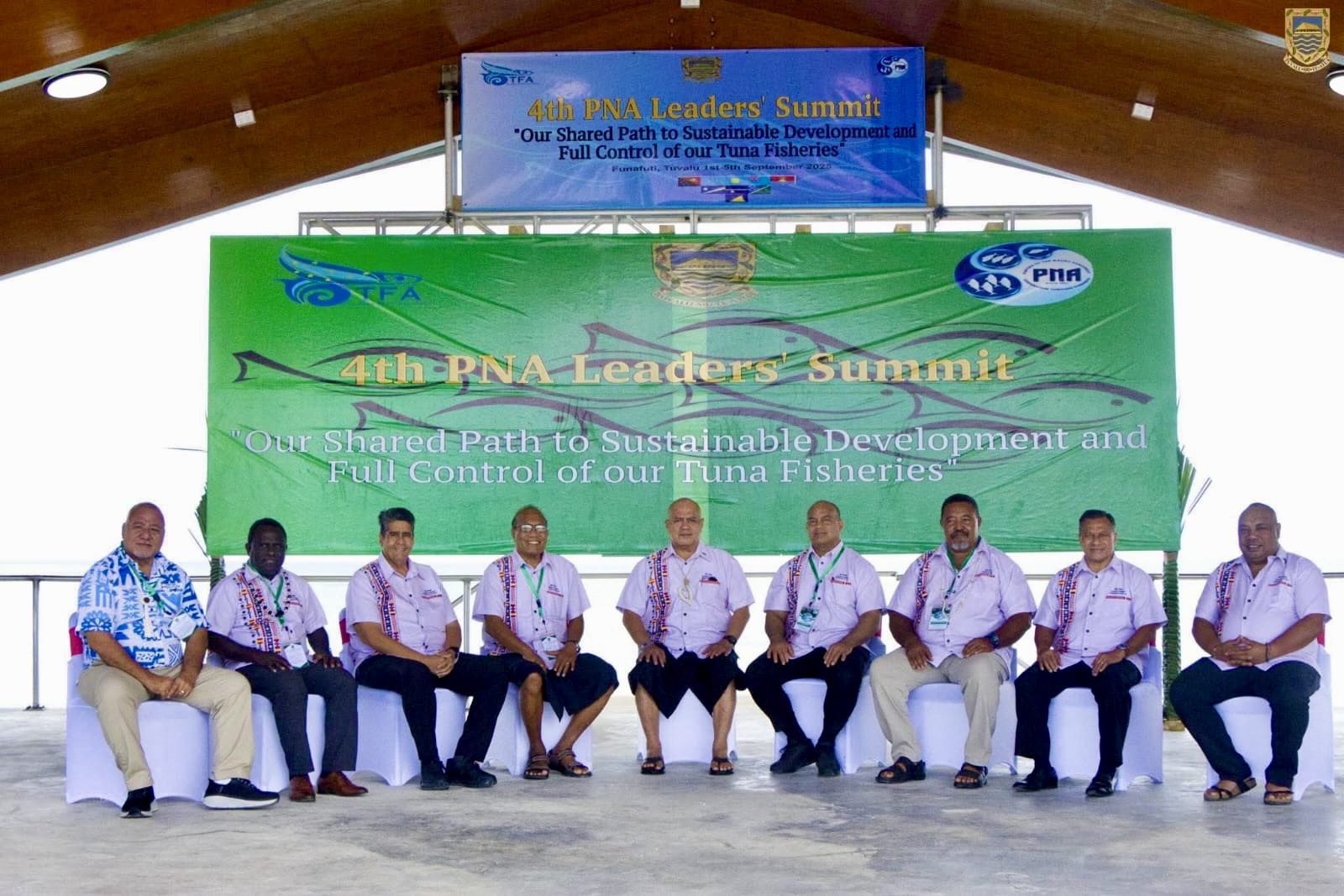The FSM NATIONAL
GOVERNMENT
The Official FSM Government Website
We are pleased to welcome you to the official website of the Government of the Federated States of Micronesia. Here, we strive to provide you with easy access to essential information, services, and resources that empower you to engage with your government and stay informed about matters that impact your life.
Our commitment is to transparency, accountability, and serving the needs of our citizens. Whether you’re seeking information about government programs and initiatives, looking for important forms and documents, or simply want to stay updated on the latest news and developments, our website is designed to be your trusted source.
RECENT POSTS
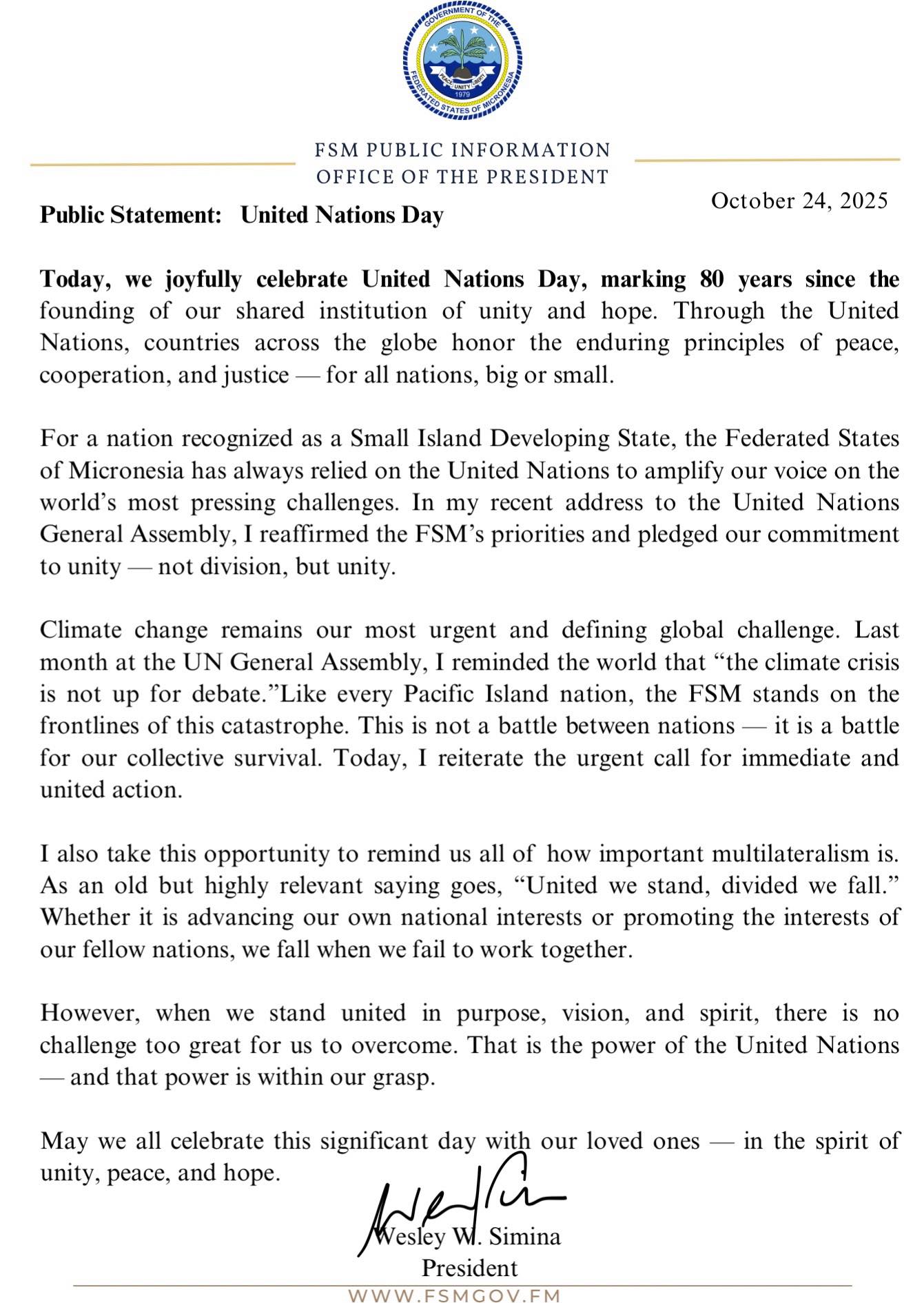
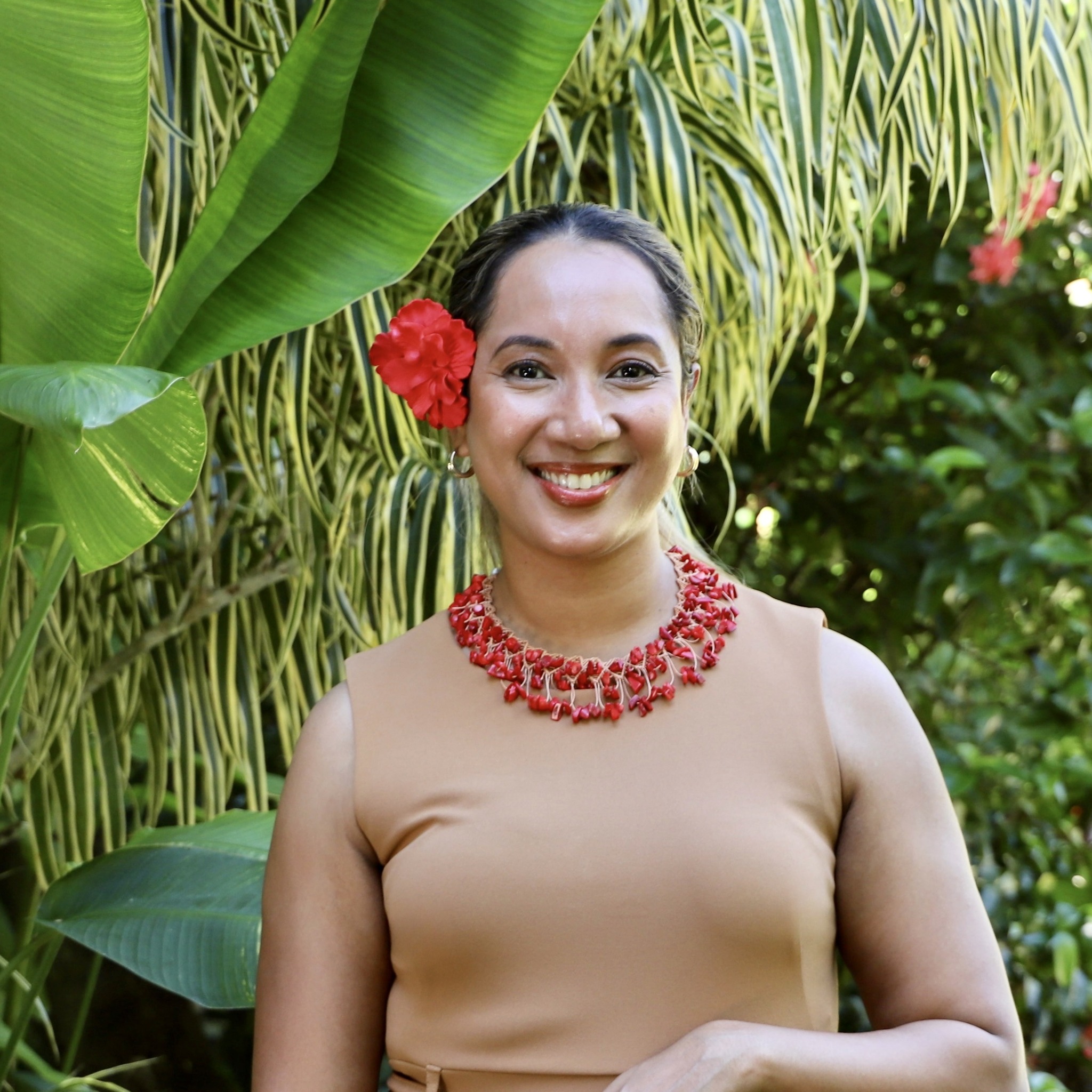
President Simina Appoints Yolanda Joab Mori as Chief of Staff
PALIKIR, Pohnpei — His Excellency Wesley W. Simina, President of the Federated States
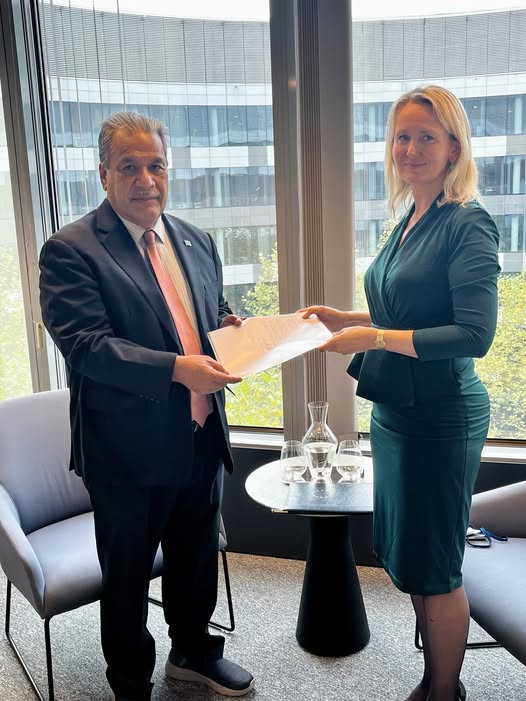
Ambassador Akillino H. Susaia Accredited as the Federated States of Micronesia’s First Ambassador to the European Union
BRUSSELS, Belgium – October 16, 2025 — His Excellency Akillino H. Susaia presented
Services and Information
Announcement
Exciting Updates Await - Check Out Our General Announcements!
Job Vacancy
Explore our Job Vacancy section and unlock doors to remarkable career opportunities that suit your skills and aspirations.
FAQ
Got questions? We've got answers! Check out our FAQ section for quick solutions to common queries.
Data Portal
Statistics Division: Informing Decisions. Improving Lives.
Tourism FSM
Tourism FSM offers natural beauty, cultural experiences, and outdoor activities like diving and hiking.
Immigration-Travel
Moving abroad or explore new experiences and cultures
Directory
Navigate the Government Directory – Your Gateway to Official Resources!
Constitutional Amendments
Learn more about our Constitutional Amendments
Frequently Asked Questions
Visit the National Elections Office website here: http://fsmned.fm/
Visit the FSM Embassy in Washington, D.C. website here: http://www.fsmembassydc.org/
Conversely, visit the Department of Foreign Affairs website here: https://dfa.gov.fm/
On the Homepage, click Announcements and then Job Announcements. This page is updated as we receive announcements the Personnel Office.
Click the “home” button on the left-hand side on the top menu.
Under Public Info, click the News Archives button.
You can find information before 2017 on FSMPIO.FM, which is the most recent FSM Public Information Office website prior to this one. Some information on the old website will be merged here throughout the course of 2019 and 2020. If you have a specific request, please contact the SAP/PIO directly.
Joint Committee on Compact Review & Planning (JCRP)
Executive Director of the Secretariat: The Honorable Epel K. Ilon
Chairman of the JCRP: The Honorable Asterio R. Takesy
PO Box K2178, Kolonia, Pohnpei State, FM 96941
Phone: (691) 320-5277
Secretary: The Honorable Lorin Robert
Deputy Secretary: Mr. Samson Pretrick
PS123, Palikir, Pohnpei State, FM 96941
Phone: (691) 320-2641/2613
Fax: (691) 320-2933
Department of Resources & Development
Secretary: The Honorable Marion Henry
PS12, Palikir, Pohnpei State, FM 96941
Phone: (691) 320-2646
Fax: (691) 320-5854
Department of Transportation, Communication, and Infrastructure
Secretary: The Honorable Lukner Weilbacher
PS2, Palikir, Pohnpei State, FM 96941
Phone: (691) 320-2865
Fax: (691) 320-5853
Department of Finance and Administration
Secretary: The Honorable Sihna Lawrence
PS158, Palikir, Pohnpei State, FM 96941
Phone: (691) 320-2640
Fax: (691) 320-2380
Department of Health and Social Affairs
Secretary: The Honorable Marcus Samo (Acting Secretary)
PS70, Palikir, Pohnpei State, FM 96941
Phone: (691) 320-2872
Fax: (691) 320-5263
NOTE: The Department of Health & Social Affairs website, as of January 9th 2019, is under maintenance. Contact the Public Information Officer (richard.clark@gov.fm) if you need additional contact information for this agency.
Department of Justice
Secretary: The Honorable Joses Gallen
PS105, Palikir, Pohnpei State, FM 96941
Phone: (691) 320-2644/2608
Fax: (691) 320-2234
NOTE: The Department of Justice website, as of January 9th 2019, is under maintenance. Contact the Public Information Officer (richard.clark@gov.fm) if you need additional contact information for this agency.
Department of Education
Secretary: The Honorable Kalwin Kephas
87 Palikir, Pohnpei State, FM 96941
Phone: (691) 320-2643
Fax: (691) 320-5500
Department of Environment, Climate Change & Emergency Management
Secretary: The Honorable Andrew Yatilman
Palikir Station, Pohnpei State, FM 96941
Phone: (691) 320-8815
NOTE: The Department of Environment, Climate Change, & Emergency Management, as of January 9th 2019, is under maintenance. Contact the Public Information Officer (richard.clark@gov.fm) if you need additional contact information for this agency.
Office of Public Defender
Public Defender: Mrs. Lorrie Johnson-Asher
PS174, Palikir, Pohnpei State, FM 96941
Phone: (691) 320-2648
Fax: (691) 320-5775
I want to get in touch with a National Government or quasi-National agency….
Public Auditor
Mr. Haser Hainrick
PS05, Palikir, Pohnpei State, FM, 96941
Phone: (691) 320-2863
Fax: (691) 320-5482
Postmaster General
Ms. Ginger Porter Mida
Box 1376, Kolonia, Pohnpei State, FM 96941
Phone: (691) 320-2614
Fax: (691) 320-2612
FSM Development Bank
President/CEO: Ms. Anna Mendiola
Box M, Kolonia, Pohnpei State, FM 96941
Phone: (691) 320-2840
Fax: (691) 320-2842
National Fisheries Corporation
President/CEO: Mr. Peter Sitan
Box R, Kolonia, Pohnpei State, FM 96941
Phone: (691) 320-2529
Fax: (691) 320-2239
National Oceanic Resource Management Authority (NORMA)
Executive Director: Mr. Eugene Pangelinan
PS122, Palikir, Pohnpei State, FM 96941
Phone: (691) 320-2700
Fax: (691) 320-2383
FSM Social Security Administration
Administrator: Mr. Alexander R. Narruhn
Box L, Kolonia, Pohnpei State, FM 96941
Phone: (691) 320-2706
Fax: (691) 320-2607
FSM Telecommunications Cooperation
President/CEO: Mr. Freddy Perman
1210 Kolonia Station, Pohnpei State, FM 96941
Phone: (691) 320-2740
Fax: (691) 320-2745
Acting CEO: Mr. Gordon Seagal
Ocean View Plaza, Suite 15, Pohnpei State, FM 96941
Phone: (691) 320-2602
Fax: (691) 320-2607
The National Archives, Culture and Historic Preservation Office
Director: Dr. Rufino Mauricio
College of Micronesia-FSM
President: Dr. Joseph M. Daisy
158 Kolonia Station, Palikir, Pohnpei State, FM 96941
Phone: (691) 320-2480/2481
Fax: (691) 320-2479

